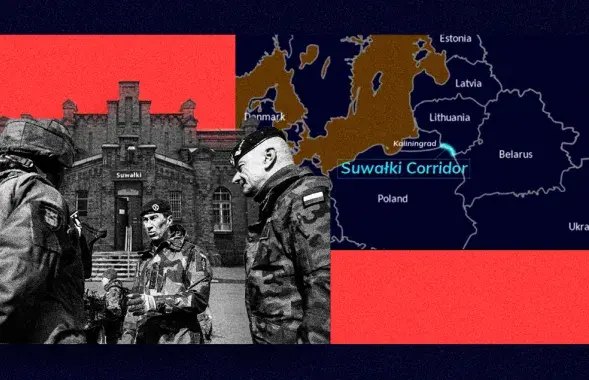Amnesty International warns Belarus government
Belarus can create a precedent if it abolishes the capital punishment through a referendum.
Belarus remains the last country in Europe, where people are punished by death. Lately, several Belarus officials and lawmakers have spoken out in favor of abolishing the death penalty. Constitutional Court Chairman Piotr Miklashevich said on March 11 that this could happen “only through a referendum”.
But, Vasil Selyadzeuski, a Constitutional Court spokesman, has now told the European Radio for Belarus, that the government could take a decision to put a moratorium on the death penalty in the current conditions. But, the notions of a moratorium and a complete abolition of the capital punishment through the change of the Constitution should be differentiated. The Constitution can be changed through a referendum only, Selyadzeuski noted.
“In today’s conditions, the issue of abolishing the death penalty or putting a moratorium can be resolved by the head of the state or the parliament. This is the position of the Constitutional Court, communicated in the March 11, 2004 resolution”, he said.
The European Radio for Belarus has explored the practice of abolishing the death penalty in Europe and learned that no referendum on this issue was held. In most cases, it was abolished legislatively, Hezah McGill from Amnesty International told the European Radio for Belarus.
“In England, it was a government’s decision. There was no referendum. In Uzbekistan, it was abolished by the president of the country. Generally, this is a legislative change”, she said.
Why don’t most of the countries hold a referendum?
McGill: “We do not believe that a referendum is a way towards the abolition of the death penalty. When ordinary people are asked, they often support the death penalty. We believe the government should display a moral leadership and take this decision”.
While officials in Belarus talk about a referendum, Amnesty International does not recommend it.
McGill: “We do not recommend this step, because the population is not ready for a referendum. There is no information about the death penalty in Belarus. People don’t even know how many death sentences have been handed. If there is no information, how can people make a decision?”
In 1996, the issue of abolishing the death penalty in Belarus was discussed during a referendum. Back then, over 80 percent voted against the abolition. But, today polls suggest that if informed properly, the population of Belarus can create a precedent and abolish the death penalty through a referendum.
“The poll, carried out by the Independent Institute for Social Economic and Political Studies, revealed that only 48 percent were against the abolition of the death penalty, while 44 percent were in favor and 8 percent abstained”, says Aleh Hulak, a prominent human rights activist.
In December 2007, Belarus’ Interior Minister Uladzimir Navumau said Belarus could not do without the death penalty. He said that the countries that had abolished it saw an increase in the number of crimes.
However, according to Amnesty International, 0.98 murders are recorded per 100 000 people per year; 2.39 – in Sweden; 6.86 – in Pakistan; 8.31 – in Belarus.
The final decision about the abolition of the death penalty will be taken by the Belarusian authorities. Europe has long waited for this development, as this country has been trying recently to build normal relations with EU.
But, experts from Amnesty International have failed to meet with high-ranking officials at the presidential administration, because “everyone is very busy there”.
As of today, 138 out of 192 countries in the world have abolished the death penalty. Belarus remains the only country in Europe and in the former Soviet space that kills people.
But, Vasil Selyadzeuski, a Constitutional Court spokesman, has now told the European Radio for Belarus, that the government could take a decision to put a moratorium on the death penalty in the current conditions. But, the notions of a moratorium and a complete abolition of the capital punishment through the change of the Constitution should be differentiated. The Constitution can be changed through a referendum only, Selyadzeuski noted.
“In today’s conditions, the issue of abolishing the death penalty or putting a moratorium can be resolved by the head of the state or the parliament. This is the position of the Constitutional Court, communicated in the March 11, 2004 resolution”, he said.
The European Radio for Belarus has explored the practice of abolishing the death penalty in Europe and learned that no referendum on this issue was held. In most cases, it was abolished legislatively, Hezah McGill from Amnesty International told the European Radio for Belarus.
“In England, it was a government’s decision. There was no referendum. In Uzbekistan, it was abolished by the president of the country. Generally, this is a legislative change”, she said.
Why don’t most of the countries hold a referendum?
McGill: “We do not believe that a referendum is a way towards the abolition of the death penalty. When ordinary people are asked, they often support the death penalty. We believe the government should display a moral leadership and take this decision”.
While officials in Belarus talk about a referendum, Amnesty International does not recommend it.
McGill: “We do not recommend this step, because the population is not ready for a referendum. There is no information about the death penalty in Belarus. People don’t even know how many death sentences have been handed. If there is no information, how can people make a decision?”
In 1996, the issue of abolishing the death penalty in Belarus was discussed during a referendum. Back then, over 80 percent voted against the abolition. But, today polls suggest that if informed properly, the population of Belarus can create a precedent and abolish the death penalty through a referendum.
“The poll, carried out by the Independent Institute for Social Economic and Political Studies, revealed that only 48 percent were against the abolition of the death penalty, while 44 percent were in favor and 8 percent abstained”, says Aleh Hulak, a prominent human rights activist.
In December 2007, Belarus’ Interior Minister Uladzimir Navumau said Belarus could not do without the death penalty. He said that the countries that had abolished it saw an increase in the number of crimes.
However, according to Amnesty International, 0.98 murders are recorded per 100 000 people per year; 2.39 – in Sweden; 6.86 – in Pakistan; 8.31 – in Belarus.
The final decision about the abolition of the death penalty will be taken by the Belarusian authorities. Europe has long waited for this development, as this country has been trying recently to build normal relations with EU.
But, experts from Amnesty International have failed to meet with high-ranking officials at the presidential administration, because “everyone is very busy there”.
As of today, 138 out of 192 countries in the world have abolished the death penalty. Belarus remains the only country in Europe and in the former Soviet space that kills people.



















